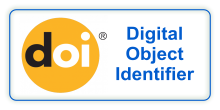PERCEPTION AND IMPORTANCE OF MENTOR-MENTEE PROGRAMME IN INDIAN INSTITUTE OF TECHNOLOGY (IIT, JODHPUR) TO FIRST YEAR ENGINEERING STUDENT
DOI:
https://doi.org/10.29121/ijoest.v4.i1.2020.67Keywords:
Mentor, Mentee, Engineering Students, UndergraduatesAbstract
Background: Mentoring is a crucial step for career success and there is lot of stress of different engineering courses in the new environment along with emotional immaturity and new challenges. A well-designed and structured mentoring programme for the budding engineers has been introduced at IIT. A specialized institutional support is required for an IIT student to facilitate success. To facilitate this high level of success for every student, the approach should be active and antecedent. Mentoring has always been an important part in an engineering students’ career.
Material and methods: A mentorship programme was designed for engineering students (n-120) at the Indian Institute of Technology, Jodhpur. Two-day workshop was conducted to sensitize senior students of third semester (n-15) who volunteered to be dedicated mentors. After sensitization, 120 B.Tech first semester students were divided among these mentors by a lottery system. At the end of the mentorship programme, perception of mentors and mentees was done by content analysis of all the data collected by open ended and close ended questionnaire.
Results: A total of 120 students and 15 mentors completed the feedback questionnaire. Mentors themselves consider this programme helpful in their self-improvement as role models, advisors or career counselors and in improving their communication skills and mentees were of the view that the programme helped them emotionally and academically.
Conclusion: Mentor-mentee programme in IIT enhanced the engineering students professional and personal development and both mentors and mentees were extremely satisfied with this programme for career development.
Downloads
References
Han SS, Lee SY, Choi WS, Kim SJ, Park SB, Lee SY. Depression and its influencing factors among Korean medical and engineering students in urban areas using Zung Self-Rating Depression Scale. Korean J Fam Med. 2009;30(7):539–548.
Crisp, G. (2009) Conceptualization and initial validation of the College Student Mentoring Scale (CSMS). Journal of College Student Development, 5o, 177-94.
Gershenfeld, S. (2014). A review of under-graduate mentoring programs, Review of Educational Research, 84, 365-91.
Jacobi, M. (1991). Mentoring at-risk students in a remedial mathematics course, Mathematics and Computer Education, 106-18.
O’Brien M, Llamas M, and Stevens E. (2012). Lessons learned from four years of per mentoring in a tiered group program within education, Journal of the Australia and New Zealand Student Services Association, 40, 7-15.
Campbell C.M, Smith M, Dugan J.P, and Komives S.R. (2012). Mentors and college student leadership outcomes: The importance of position and process. The Review of Higher Education, 35(4), 595-625.
Chester A, Burton LJ, Xenos S, and Elgar K. (2013). Peer mentoring: Supporting successful transition for first year undergraduate psychology students. Australian Journal of Psychology, 2013(65), 30-47.
Thirty H, and Laursen S.L. (2011). The role of student-advisor interactions in apprenticing undergraduate researchers into a scientific community of practice. Journal of Science Education and Technology, 20, 771-84.
Dolan E, and Johnson D. (2009). Toward a holistic view of holistic undergraduate research experiences: An exploratory study of impact on graduate/postdoctoral mentors. Journal of Science Education Technology, 2009(18), 487-500.
Drake J.K. (2011). The role of academic advising in student retention and persistence. About Campus, 16(3), 8-12.
McKimm, J., Jollie, C., & Hatter, M. (2007). Mentoring: Theory and practice. Retrieved June19, 2013, from: http://www.faculty.londondeanery.ac.uk/elearning/feedback/files/Mentoring_Theory_and_Practice.pdf.
Ramani, S., Gruppen, L., & Kachur, E. K. (2006). Twelve tips for developing effective mentors. Medical Teacher,28(5), 404-408.
Murray, M., Beyond the Myths and Magic of Mentoring, Jossey-Bass, San Francisco, CA,1991.
Argente-Linares, Eva; Pérez-López, M. Carmen; Ordóñez-Solana, Celia (2016-10-19). "Practical Experience of Blended Mentoring in Higher Education". Mentoring & Tutoring: Partnership in Learning. 24 (5): 399–414. doi:10.1080/13611267.2016.1273449. ISSN 1361-1267.
Roche, G.R. (1979) Much ado about mentors, Harvard Business Review,1, pp. 14-31.
Freeman, R. (1997) Information shared in mentoring must remain confidential, British Medical Journal, 314(7074), p. 149.
Gupta, S., Jindal, V., Gulati, P., Walia, D.K., & Sarpal, S.S. (2013). Effect of mentoring on psychosocial behavior, lifestyle, sexual behavior and health condition of professional students. Jahrbuch fur Psychologie and Psychotherapie, 3(2), 112.
Prince, B. (2004). Mentoring: The key to clinical learning. Nursing standard, 18, 1-2. Doi: 10.7748/ns2004.09.18.52.1.c6647.
Agholor, D., Lleo, A., & Serrano, N. (2017). Mentoring future engineers in higher education: a descriptive study using a developed conceptual framework. Production, 27(spe), e20162207. http://dx.doi.org/10.1590/0103-6513.220716.
Alison, T., Steve, M., & Sarah, C. Making mentoring work: Training for quality. Volume5. Number1. 1997. Pp.6-9. MCB University Press: ISSN 0968-4875.
Eby, L.T., and Dolan, E.L. (2015). Mentoring in postsecondary education and organizational settings. In APA Handbook of Career International, Volume 2: Applications, P.J. Hartung, M.L. Savickas, and W.B. Walsh, eds., Washington, DC, USA: American Psychological Association, pp.383-95.
Fox, A., Stevenson, L., Connelly, P., Duff, A., and Dunlop, A. (20100. Peer-mentoring undergraduate accounting students: The influence on approaches to learning and academic performance. Active Learning in Higher Education, 11, 145-56.
Bettinger, E., and Baker, R. (2011). The effects of student coaching in college: An evaluation of a randomized experiment in student mentoring. National Bureau of Economic Research Working Paper 16881. Retrieved from: http://www.nber.org/papers/w16881 [accessed on: 15 September, 2015].






























